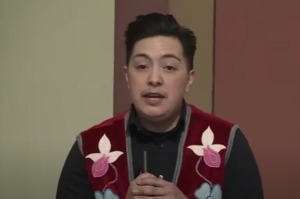Christian Cyclone Victims in Bangladesh May Be Neglected, Warns Group
Hundreds of Thousands Still in Need in Aftermath of 'Forgotten Disaster'
Hundreds of thousands of people in Bangladesh's southwestern region remain homeless after a cyclone struck late last month, killing more than 260 people.
And according to a faith-based organization that supports persecuted churches, Christians are at risk of being neglected as general aid is distributed to victims in the predominantly Muslim country.
"Many Christians have been severely affected by this cyclone," reported the Barnabas Fund on Friday. "Churches have been destroyed and at least 1500 Christian families have been affected, losing homes, livestock, crops, access to work, food, clean water and sanitation."
On May 25, Cyclone Aila lashed low-lying areas in eastern India and Bangladesh, destroying thousands of homes, injuring over 7,000, and killing at least 264 before weakening.
Ziaul Alam, the local administrator in Bangladesh's Khulna district, told The Associated Press that at least 500,000 villagers were affected or stranded, mostly by flash floods caused by tidal surges.
In total, the Barnabas Fund reported that an estimated three million Bangladeshis and two million Indians – at least half of them children – have been affected by the storm.
"Thousands of people are struggling without food and water and are seeking shelter on the limited higher ground," stated the organization Friday. "Many are marooned and awaiting assistance, but stormy conditions, turbulent rivers and mudslides have hampered rescue efforts to the most devastated areas."
There is also increasing concern that salt water from the tidal surge following the cyclone may contaminate the rivers and groundwater used for drinking and farming, it added.
Lack of drinking water not only forces many to go hungry as they will be unable to cook the food they receive from relief agencies, it also increases incidences of diarrhea, which can prove deadly.
"Diarrhea is a serious concern," commented Mohammad Badi Akhter, acting chief of operations for the NGO network Oxfam in Dhaka.
He told the U.N.-run IRIN news agency earlier this month that 10 people in Satkhira District alone had died of diarrhea in a single day.
"There is an urgent need to provide clean water, food and medicine to our brothers and sisters affected by this disaster," commented Dr. Patrick Sookhdeo, international director of Barnabas Fund, which called the disaster in Bangladesh "under-reported" and "forgotten."
"We are initially assisting around 500 families, but the need is much greater," added the Christian leader, whose organization is working in Bangladesh to provide emergency relief in the form of cooking oil, rice, lentils, bread, medicine and clean water.
Other groups working to improve the WASH (water, sanitation and hygiene) situation in Bangladesh include the U.N. Children's Fund, the government's Department of Public Health Engineering, Action contre la Faim, ActionAid, BRAC, CARE, CARITAS, Catholic Relief Services, NGO Forum, Islamic Relief, Muslim Aid, Save the Children USA, Solidarites, Oxfam GB and Water Aid.
According to Oxfam, the Ganges-Brahmaputra and Meghna river basin in Bangladesh is one of the most disaster-prone regions in the world. Bangladesh's coastline is regularly battered by tropical cyclones, and one-third of the country floods annually during the monsoon.
Some in Bangladesh don't expect waters from the latest flooding to recede before the end of the monsoon season – around the end of September.
According to the country's Disaster Management Bureau, over 1,400 km of flood protection embankments were washed away by Aila, exposing thousands of villages just as the monsoon was beginning.





























